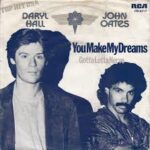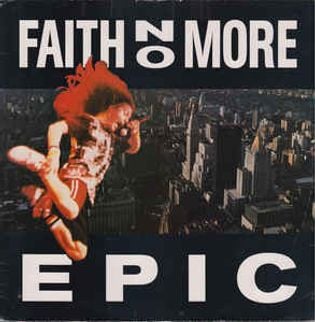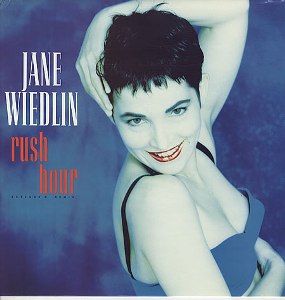 Some songs don’t just become hits; they become fixtures in our collective memory, pieces of cultural shorthand for happiness, energy, and that unmistakable rush of joy when life feels cinematic. Hall and Oates’ “You Make My Dreams Come True” is one of those rare tracks. Released in 1980 on the duo’s album Voices, the song has gone from being a chart success to an ever-present soundtrack for moments of elation, whether in movies, commercials, wedding playlists, or simply the background of a good day. Over four decades later, the song hasn’t lost its shine. If anything, it has become brighter, a kind of pop talisman that continues to remind listeners of the ecstatic highs of love and life. To understand its enduring magic, it’s worth delving into not just the track itself, but the alchemy that created it, the cultural afterlife it enjoys, and the unique place it occupies in the long and illustrious career of Hall and Oates.
Some songs don’t just become hits; they become fixtures in our collective memory, pieces of cultural shorthand for happiness, energy, and that unmistakable rush of joy when life feels cinematic. Hall and Oates’ “You Make My Dreams Come True” is one of those rare tracks. Released in 1980 on the duo’s album Voices, the song has gone from being a chart success to an ever-present soundtrack for moments of elation, whether in movies, commercials, wedding playlists, or simply the background of a good day. Over four decades later, the song hasn’t lost its shine. If anything, it has become brighter, a kind of pop talisman that continues to remind listeners of the ecstatic highs of love and life. To understand its enduring magic, it’s worth delving into not just the track itself, but the alchemy that created it, the cultural afterlife it enjoys, and the unique place it occupies in the long and illustrious career of Hall and Oates.
The track bursts to life instantly. From the moment the electric piano and upbeat rhythm kick in, there’s no ramp-up, no teasing introduction—it launches like a bottle rocket of joy. The syncopated rhythm has a bounce that pulls the listener in before Daryl Hall’s unmistakable voice arrives, brimming with exuberance and confidence. There’s something almost giddy in his delivery, as if he’s barely able to contain the excitement of what he’s singing. “What I want, you’ve got,” he begins, a line that sets the tone perfectly: this is a song about having found the thing that makes life feel electric, the person who transforms ordinary days into dreams. Oates’ backing vocals weave in and out, giving the song a layered texture that elevates it beyond standard pop fare. The guitar licks are sharp, precise, and playful, while the rhythm section is tight and driving without being overwhelming. It’s an immaculate production, and yet it never feels over-engineered; it has an effortless quality, like the sound was destined to exist all along.
Part of what makes “You Make My Dreams Come True” so irresistible is its balance between familiarity and freshness. It draws on elements of rock, soul, and new wave, the blend that Hall and Oates mastered better than almost anyone else of their era, but it feels neither dated nor overly tied to its moment. Instead, it occupies a kind of timeless middle ground. That’s one reason why it can slip seamlessly into films like 500 Days of Summer, where it famously soundtracks Joseph Gordon-Levitt’s euphoric post-romantic triumph dance number, or appear in TV commercials decades after its release without losing its impact. Songs tied too closely to their time can feel trapped there, but “You Make My Dreams Come True” feels as alive in 2025 as it did in 1980.
To understand its staying power, it helps to consider the duo who made it. Daryl Hall and John Oates weren’t just a successful pop act; they were a phenomenon. Throughout the late 1970s and 1980s, they amassed hit after hit, with songs like “Maneater,” “Private Eyes,” and “Kiss on My List” defining the sound of their era. What set them apart was their ability to blend soulful vocals with pop hooks and rock instrumentation, creating songs that felt both emotionally authentic and radio-ready. Hall’s voice, with its combination of smoothness and raw power, could sell almost any lyric, while Oates’ harmonies and instrumental instincts grounded the duo. In “You Make My Dreams Come True,” their partnership is on full display. The song feels as much about their chemistry as it does about the romantic joy in the lyrics.
Interestingly, the song wasn’t the biggest chart hit of their career. It peaked at number five on the Billboard Hot 100 in 1981—not insignificant by any measure, but it was overshadowed in its time by some of their other massive singles. Yet, in hindsight, it has perhaps outlasted them all in terms of cultural ubiquity. While songs like “Maneater” and “Private Eyes” remain classic radio staples, “You Make My Dreams Come True” has achieved a different status: it’s become a shorthand for happiness itself. When filmmakers, advertisers, or even fans assembling playlists want to capture the sound of unfiltered joy, they turn to this track.
The lyrics, deceptively simple, are a big part of that. There’s no poetic abstraction, no layered metaphor—it’s straightforward, clear, and universal. “You make my dreams come true” is about as direct as a love song can get, and that directness is its strength. It doesn’t require interpretation. Anyone who has ever felt the dizzying delight of being with someone who changes everything knows exactly what Hall is singing about. The universality of that message ensures that the song never loses relevance.
The sound, too, is engineered for longevity. While many songs of the early 1980s leaned heavily into synth-heavy production that can feel dated today, “You Make My Dreams Come True” keeps its arrangement lean and crisp. The electric piano gives it a unique texture without drowning it in period-specific sounds, and the guitar work, with its clean, funky flourishes, has a timeless quality. Even the rhythm section has a kind of rolling groove that feels more classic than trendy. As a result, the song never gets locked into its year of release. Instead, it floats freely, able to adapt to new contexts and audiences without losing its vitality.
Its resurgence in the 2000s and 2010s is proof of that adaptability. The 500 Days of Summer sequence introduced the song to a new generation, and its placement there was no accident. Director Marc Webb chose it precisely because it captured the ineffable feeling of joy after a romantic breakthrough. That scene, with Gordon-Levitt high-fiving strangers and dancing through the streets to the song’s buoyant beat, has become iconic, and in many ways redefined the track for younger audiences. It wasn’t just their parents’ or grandparents’ song anymore—it was theirs, too. From there, the song appeared in countless commercials, trailers, and celebratory montages, each time reinforcing its connection to moments of triumph and happiness.
Beyond its cultural appearances, the song has also become a staple of real-life celebrations. It’s a fixture at weddings, parties, and sporting events, moments when people want to bottle up happiness and blast it through speakers. Its infectious energy makes it impossible not to move to; even those who claim not to dance often find themselves tapping a foot or nodding along when it comes on. The chorus, with its sing-along simplicity, invites collective joy. In this sense, the song functions less like a standard pop track and more like an anthem. It belongs to everyone who’s ever wanted to express pure elation.
What’s remarkable is that Hall and Oates didn’t necessarily set out to write a universal anthem of joy. In many ways, “You Make My Dreams Come True” was just another track on Voices, an album filled with experimentation and boundary-pushing. The record as a whole marked a turning point for the duo, as they took greater control over their music and pushed beyond the confines of conventional pop. While some songs on the album explored darker or more complex themes, “You Make My Dreams Come True” stood out for its unabashed optimism. That balance helped make Voices a critical and commercial success, and it showed the range that Hall and Oates were capable of.
Over time, the song has even become emblematic of the duo themselves. For many casual listeners, if you ask them to name a Hall and Oates song, this is the one that comes to mind. It captures the essence of what they were about: catchy hooks, soulful vocals, and music that made people feel good. It also highlights their influence on future generations of artists. From Bruno Mars to Maroon 5, countless contemporary pop acts owe a debt to Hall and Oates’ blend of soul and pop, and “You Make My Dreams Come True” is a prime example of the template they created.
Its endurance also speaks to the broader truth about music and emotion. Songs that capture sadness, anger, or heartbreak often achieve critical acclaim and cult followings, but songs that capture joy in a way that feels authentic are much rarer. Joy can be difficult to convey without veering into the saccharine or the superficial. What makes “You Make My Dreams Come True” special is that it feels genuine. The exuberance in Hall’s voice isn’t forced; it’s infectious. The music doesn’t feel calculated; it feels spontaneous, even though it’s meticulously crafted. That authenticity is what allows it to resonate decade after decade.
Looking at its legacy now, more than forty years after its release, it’s clear that “You Make My Dreams Come True” has transcended its origins. It’s no longer just a Hall and Oates song, or even just a pop hit from the early 1980s. It has become a piece of cultural DNA, woven into the fabric of countless individual lives and shared experiences. Every time it plays, it sparks joy in someone new, while also calling back memories for those who’ve carried it with them for years. It’s a rare thing, a true evergreen song that never seems to age.
Hall and Oates themselves have continued to perform it throughout their careers, and live audiences respond to it with the same energy as they did decades ago. For the duo, it must be a unique experience: to play a song so synonymous with happiness, to watch thousands of people light up instantly when those first notes hit. Few artists are lucky enough to have a song like that in their repertoire, and fewer still have one that continues to grow in stature with each passing generation.
Ultimately, “You Make My Dreams Come True” endures because it captures something universal. It’s not just about love, though that’s its immediate subject. It’s about the feeling of having something—or someone—that makes life better, that transforms the ordinary into the extraordinary. It’s about joy, pure and unfiltered, something everyone longs for and treasures when they find it. And in capturing that, Hall and Oates didn’t just write a song; they created a musical embodiment of happiness itself. Forty years on, it still makes dreams come true every time it plays, and there’s no sign of that stopping anytime soon.


